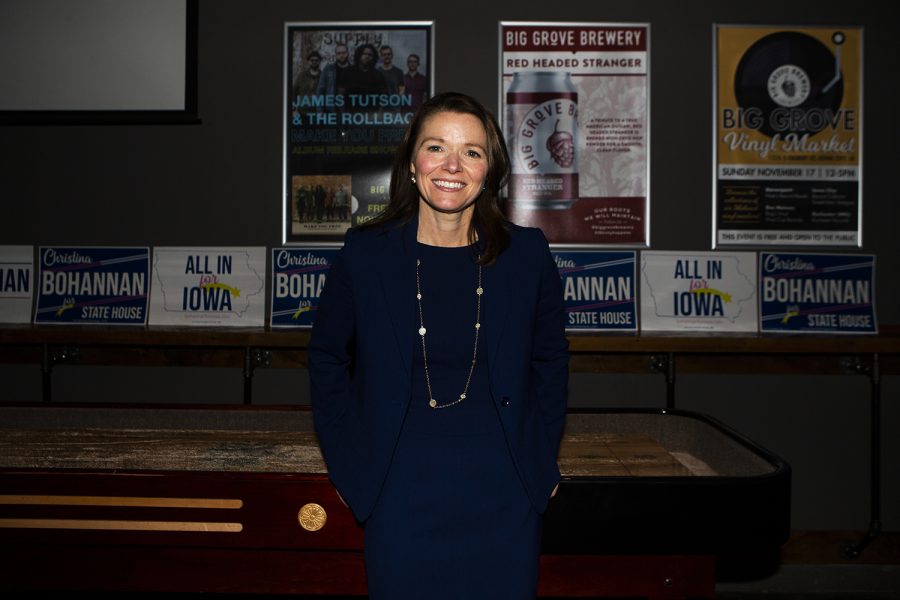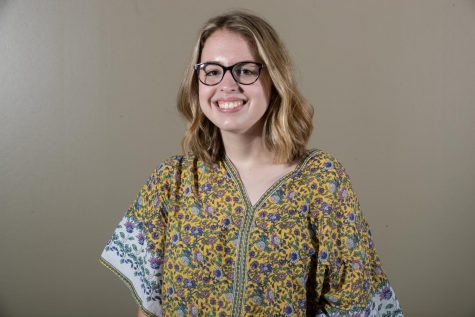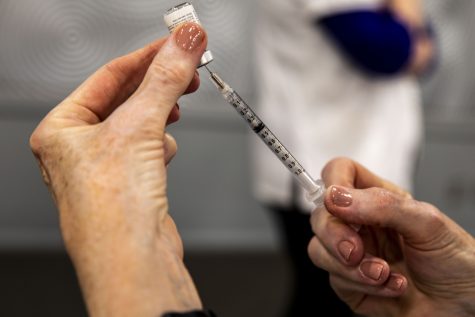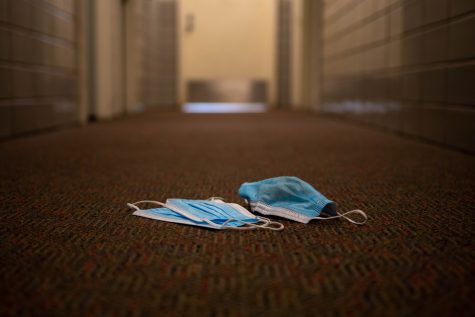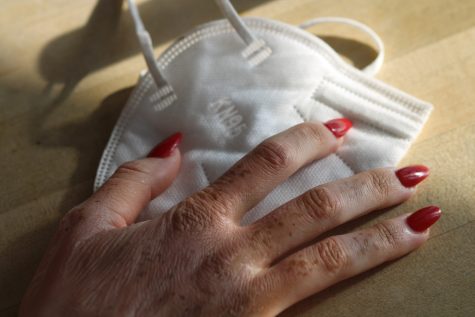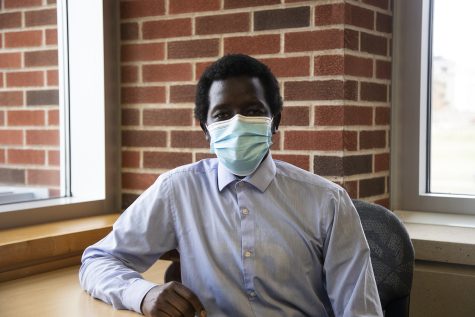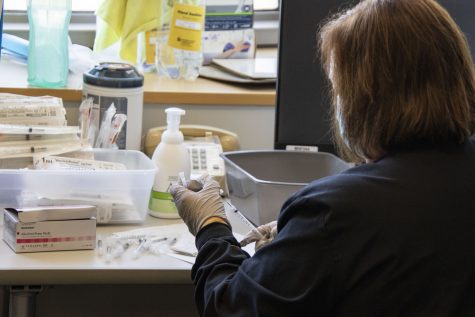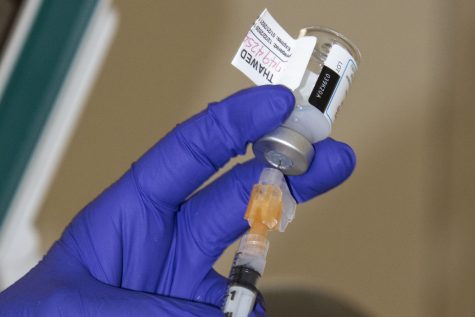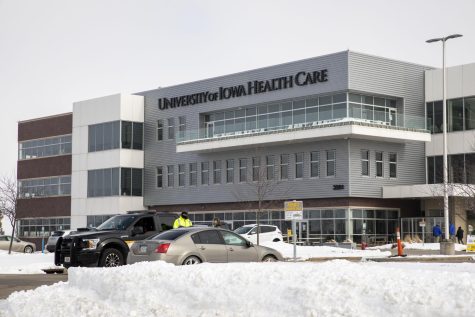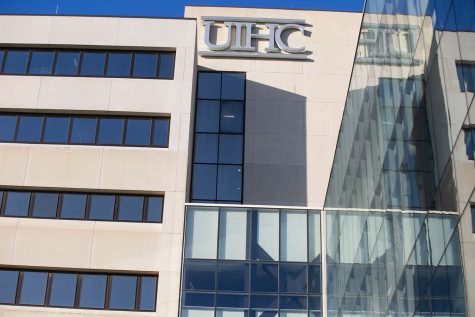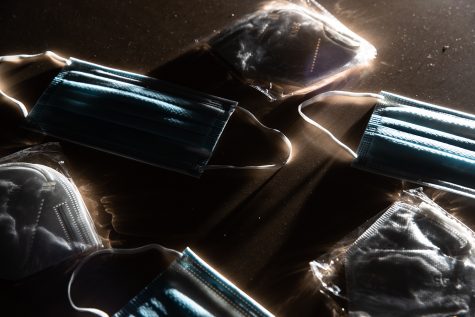Campaigns continue virtually through the COVID-19 pandemic
Candidates for office across the state are working to adjust their campaigns to reach voters before the June 2 primary.
Iowa House candidate Christina Bohannon speaks during the kickoff event for her Iowa House bid at Big Grove on Wednesday, November 13, 2019. Bohannon advocates for combating climate change, voices for education, and addressing gun violence.
April 1, 2020
Christina Bohannan was in the midst of knocking doors for her campaign for Iowa’s 85th House District when schools and businesses began to close in response to the COVID-19 outbreak around March 17.
“I had my list and I was going up and down knocking doors on different streets,” Bohannan said. “That’s really fun because you get to meet people at their homes and talk to them about the things that matter to them and put faces to names.”
Bohannan said when businesses began to close, she had to make the decision to suspend in-person campaigning and shift to using social media and phone calls to connect to voters.
With the June 2 primaries quickly approaching, candidates seeking office across the state are forced to make similar decisions as guidelines around social distancing prohibit gatherings larger than 10 and discourage non-essential trips outside the home.
RELATED: UI law professor Christina Bohannan fundraises for Iowa House District 85 bid
Marianette Miller-Meeks, who is seeking the Republican nomination for Iowa’s 2nd Congressional District, has canceled upcoming events and fundraisers and suspended knocking doors. Her online campaigning has shifted their messaging to educating people on ways to help neighbors during the pandemic.
“I have noticed that people intuitively knew what to do when there was a tornado, or a flood, or a natural disaster, but people weren’t sure what to do when there was a pandemic,” Miller-Meeks said. “So we did a video on how you can volunteer to help your community and what things you can do to maintain social distance.”
Miller-Meeks said while her top priority is stopping the spread of the disease, maintaining social distance has led to a very different campaigning experience.
“I miss that feedback and the inspiration I get from meeting people,” Miller-Meeks said. “You miss that sense of urgency you have when you’re interacting with people, so those are some things that emotionally people have to overcome when they’re campaigning and social distancing.”
Candidates in the Democratic primary for the U.S. Senate have canceled events and are relying on building digital platforms. Some candidates have started live streamed events and are relying on email lists and social-media outreach to connect with supporters.
In statements to The Daily Iowan, candidates said they were confident in their ability to pivot to online campaigning.
Kimberly Graham, a Democratic candidate running for senate, had completed 85 counties out of her 99 county tour and moved the rest of her events to online live streams.
“We have double the number of Twitter followers as our next primary competitor, so the transition to all-digital has gone well,” Graham said in an email to the DI. “The most important thing above all else has been and will always be to ensure that voters, volunteers and staff are all safe.”
Democratic contender Eddie Mauro canceled several upcoming events on March 11 and said in a statement that canceling early was valuable to the campaign.
“We were the first campaign to really pivot to digital/mobile organizing because we saw the writing on the wall,” Mauro said in an email to the DI. “As a result, we had nearly two weeks to strategize how to approach reaching an audience we can’t shake hands with, and we are well-positioned to win this primary.”
Democratic candidate Theresa Greenfield canceled in-person events and her campaign staff is currently working from home, according to a statement she released earlier this month.
Representatives for incumbent Senator Joni Ernst did not indicate if she has any planned changes to her campaign in response to the outbreak.
“Team Joni has an extensive statewide grassroots organization and expansive in-state digital abilities that we are able to utilize even while folks are at home. Senator Ernst is also continuing to do virtual events,” Ernst spokeswoman Melissa Deatsch said in an email to the DI.
Polling hasn’t been conducted in the race for the Democratic nomination for Iowa’s U.S. Senate seat, but each candidate has put up individual donation numbers for last year. Theresa Greenfield has garnered $2.3 million in individual donations, and none of the other candidates have hit seven figures in individual donations as of Dec. 31 according to the Federal Election Commission.
Keegan Brown, communications director for Mauro’s campaign, said the campaign regularly gets thousands of views on live-streamed events, and around 360,000 total views over half a month of holding events online.
Though some candidates are confident in their digital networks, candidates for local office said the transition has been an adjustment.
Brad Kunkel, a Democrat running for Johnson County Sheriff, said suspending face-to-face organizing has been challenging.
“For the better part of the past year I’ve been out meeting folks, having public events … doing as much in-person contact as I can,” Kunkel said. “That all came to a stop about three weeks ago and it’s totally changed how I’ve connected with voters, because those face to face interactions have come to a complete stop.”
The virus is also impacting how the voters will be able to cast their ballots, though the June 2 primary election will continue as scheduled.
Voters are encouraged to vote by mail. Iowa Secretary of State Paul Pate announced on March 31 that every registered voter will receive a mail-in ballot in mid-to-late April. Polling locations will still be open on June 2.
Johnson County Auditor Travis Weipert said he did not anticipate mail-in-voting causing a large change in turnout, as primary turnout is typically around 10 percent in Johnson County.
Weipert said some precinct locations may be combined, and there could be a smaller number of people willing to work polls.
“Most of our poll workers are over that 60 year old mark, which puts a lot of folks in the higher risk category,” Weipert. “There’s a concern that a lot of them won’t want to work the polls and risk coming into contact with so many people on election day.”



